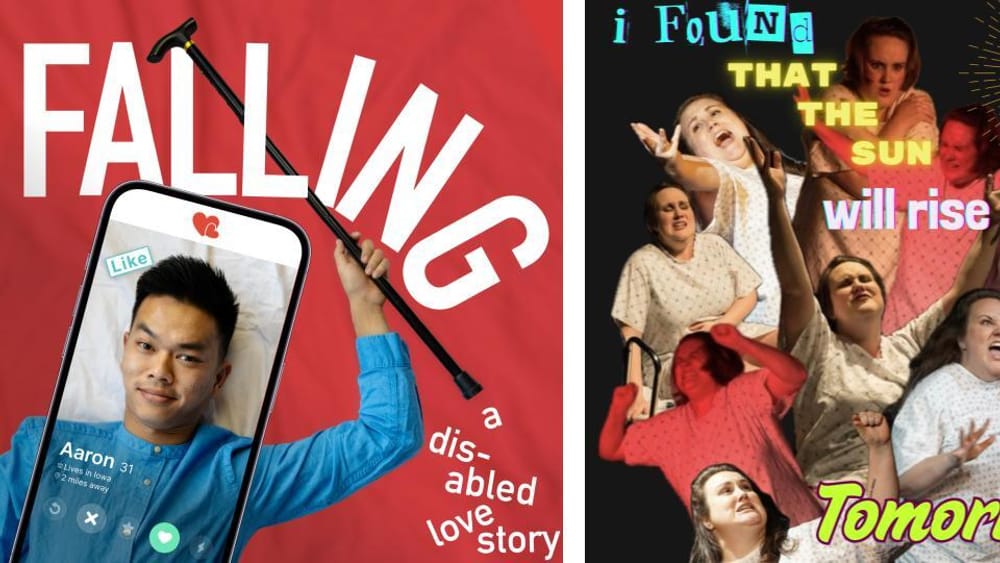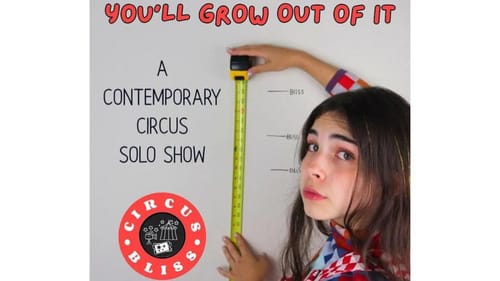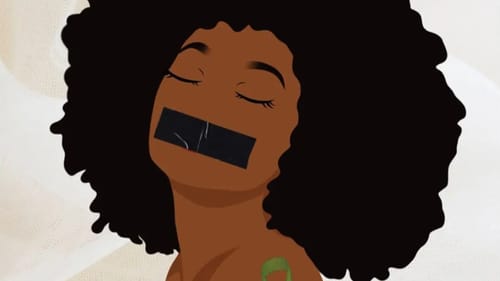Stay in the Loop
BSR publishes on a weekly schedule, with an email newsletter every Wednesday and Thursday morning. There’s no paywall, and subscribing is always free.
Healthcare is a human right for artists, too
A radical act: 2025 Philly Fringe artists tackle illness and disability

Artists look to the future more bravely, more creatively, and with clearer eyes than almost anyone else. So I’m not surprised to see a robust lineup of Fringe shows tackling life with disability or chronic illness and the struggle to access healthcare, as well as visions for a better world.
It’s time for all of us to pay attention, especially in Philadelphia. The budget bill that Republicans jammed through Congress this summer contained devastating cuts to Medicaid and the Affordable Care Act to offset permanent tax breaks for the super-rich.
If this doesn’t yet directly affect you or someone you love, it will. As an estimated 10 million people lose their health insurance nationwide in the coming years, healthcare costs will skyrocket. Last month, Pennsylvania’s Affordable Care Act marketplace warned enrollees that costs may rise by more than 80 percent this January. Additionally, the Pennsylvania Department of Human Services warns that 310,000 Pennsylvanians are facing the loss of their Medicaid coverage, including more than 70,000 Philadelphians.
Freelance artists, writers, journalists, and other creatives are disproportionately affected by these cuts, as we are increasingly pushed out of institutional structures that provide healthcare and hit with the loss of federal grants.
So what do artists do in response? Do they go home, keep quiet, and pretend that lives are not at stake? Absolutely not. This year’s Fringe (September 4-28, 2025) finds artists doing what they do best: in the face of injustice, they speak up with their own stories. In a world where disabled people face rampant stigma, silencing, and even a struggle to survive, this is a radical act. It encourages others to speak up. And together, we imagine a better future for everyone.
Shows to check out
Healthcare Is a Human Right!
By Philly’s Medicare for All Movement (M4A)
Tuesday, September 2, and Saturday, September 6, at the Louis Bluver Theatre at the Drake (wheelchair-accessible)
This interdisciplinary show featuring artists from Philly’s M4A incorporates visual art, puppetry, music, and theater, promising to “educate, entertain, and inspire you with our ideas, raucousness, reverence, and hope for a healthier tomorrow.” Optional audience participation will invite those with strong opinions about for-profit healthcare, disability justice, insurance companies, health disparities, and more.
You’ll Grow Out of It
By Bliss Button-Hale
Saturday, September 13 at Mt. Airy’s Circus Campus
Multidisciplinary circus artist Bliss Button-Hale’s new solo show explores “the relationship between chronic illness and the social pressure of growing up and fitting in,” as she was homeschooled in rural Tennessee with a “picture-of-health mother [who] assured her that she would grow out of her many childhood ailments.” Button-Hale is a young artist—still in her 20s—so I’m impressed by her perspective.

Falling - a disabled love story
By Aaron Pang
September 11-16, 2025, at the Louis Bluver Theatre at the Drake (wheelchair-accessible)
Aaron Pang, who walks with a cane because of a life-changing spinal cord injury, offers an “uncomfortably sexy and hilariously vulnerable stumble” into “the uncertain world of first loves, online dating, and sex.” Even when stories featuring disabled characters (often written and portrayed by nondisabled people) break through, it’s rare that they deal authentically with love and sex. We need more of these firsthand stories.
Some Kind of Peace
By Sarah Messenger
Friday, September 19, and Saturday, September 27, at the CHI Movement Arts Center (wheelchair-accessible)
Mental health, including trauma recovery, is part of disability justice. This dance piece is based on the “movements, stories, and wisdom” of a somatic workshop for survivors of sexual violence conducted last spring. Creator Sarah Messenger says, “This work is the story of coming back: coming back to life, coming back to the sun, coming back to your own skin … I wanted this work to not just be my story, but that of a community of survivors and to give that community representation in dance and on the stage."
I Found That the Sun Will Rise Tomorrow
By Anna Snapp
September 13-27, 2025, at the Proscenium at the Drake (wheelchair-accessible)
This solo show (which Snapp has performed for years Off-Broadway, at Fringe festivals, and for medical professionals) “shares the deeply personal, painful, and earth-shattering details of her long-term battle with chronic disease, mental illness, and sexual trauma.” It’s a coming-of-age story in which a young woman puts “a terrifying puzzle together without the picture on the front of the box.”
invisibleDISS
By Reina Bracha
Saturday, September 13, and Wednesday, September 17, at Studio 34 (each date also has a livestream option)
This solo show dives into Bracha’s experience navigating a broken system with an “invisible” disability: Long Covid. Bracha incorporates real emails, texts, DMs, doctors’ notes, and more in this “embodied auto-documentary narrative collage,” which she hopes will “make her invisible struggles visible for her communities to witness and perhaps transform.”

The Silent Struggle (There, I Said It)
By Taahira Teshi
September 7-21, 2025, at the Indigenous Peoples Artisan Marketplace (wheelchair-accessible)
Teshi combines “dark humor” and “unvarnished truths” in her solo show about a college student on the “Mental Health Rollercoaster,” highlighting the stigmas around mental health issues and “disparities in treatment for African Americans and other people of color.” It’s a much-needed perspective.
Zap!
By Antihero Theatre Company
September 2-28, 2025, at the Louis Bluver Theatre at the Drake (wheelchair-accessible)
Antihero Theatre Company is a new troupe led by deaf and hard-of-hearing artists, and its debut show combines signing and voice performers. The play bridges noir fiction and fantasy in a world where humans and anthropomorphic species mix. After a fatal accident with a human victim, an anthropomorphic detective and police officer face difficult questions of co-existence. It’s exciting to see work that is accessible for both deaf and hearing audiences in this year’s Fringe, and I hope we see lots more of it in the future.
At top: I Found That the Sun Will Rise Tomorrow is coming to the Philly Fringe. (Image via FringeArts.)
Sign up for our newsletter
All of the week's new articles, all in one place. Sign up for the free weekly BSR newsletters, and don't miss a conversation.

 Alaina Johns
Alaina Johns